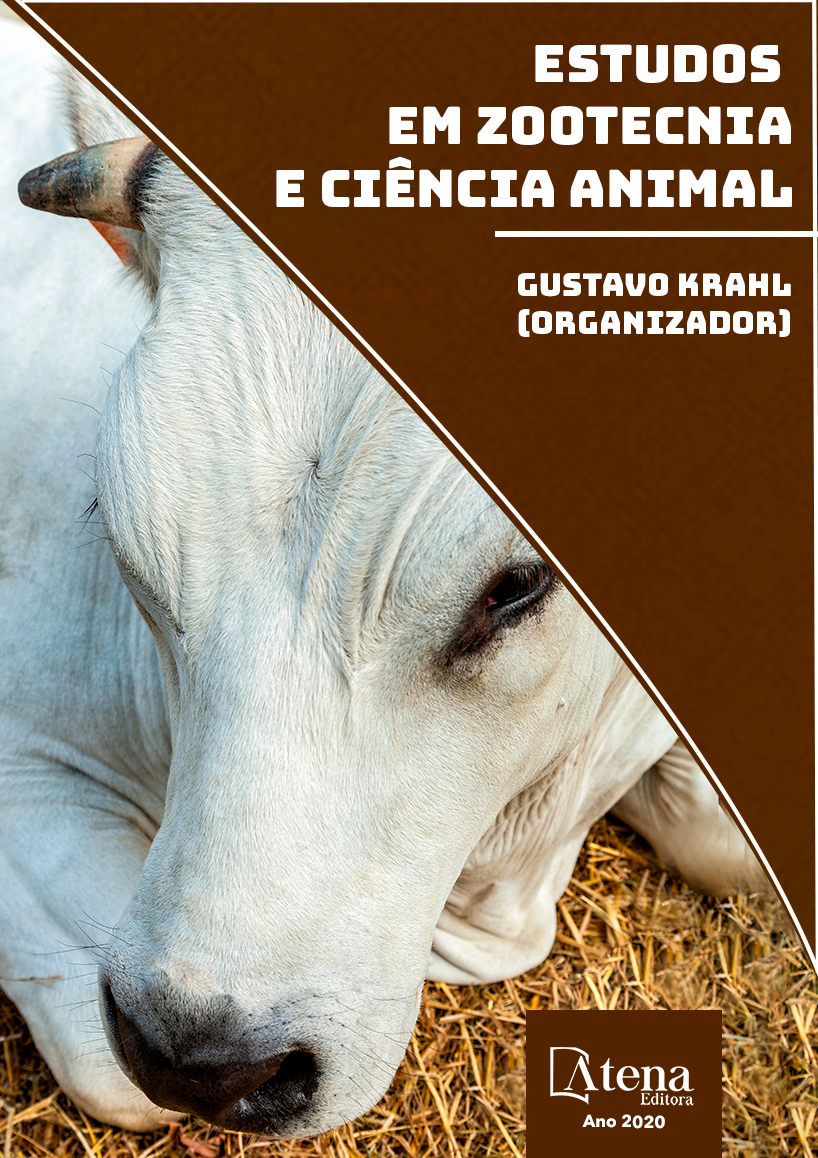
INDICADORES DE DESEMPENHO DE TOUROS EM PROVAS DE MONTARIA
O desempenho de touros em
provas de montaria depende de características
fisiológicas e morfológicas dos animais, pois
estas são responsáveis pela habilidade de
obter movimentos adequados para a boa
performance. As características que compõem o
desempenho de touros de rodeio são favoráveis
quando estas permitem maior facilidade de
movimentos, agilidade e persistência dos
animais. O objetivo do estudo foi avaliar o
desempenho de touros em 52 provas de
montaria por meio de indicadores, no município
de Jaboticabal, SP, no ano de 2013. Os
indicadores pulo, coice, giro, intensidade e grau
de dificuldade de cada animal foram avaliados
por meio de notas visuais de 1 a 5, com escala
de 0,25, indicando da menor a maior nota,
respectivamente. Os dados foram analisados
por estatística descritiva e por associações
através da correlação de Spearman. As
médias e desvios-padrão dos indicadores
foram 1,7±0,31; 1,65±0,35; 1,66±0,57;
1,71±0,42; 1,87±0,55, respectivamente. Foram
estatisticamente significativas as correlações
entre pulo e coice (0,51); pulo e intensidade
(0,52); intensidade e grau de dificuldade (0,89);
pulo e grau de dificuldade (0,49); coice e
intensidade (0,43); coice e grau de dificuldade
(0,44); giro e intensidade (0,41); giro e grau
de dificuldade (0,48). Não foram significativas
correlações entre pulo e giro; coice e giro. Os
resultados mostram associação em destaque
para pulo e coice, movimentos essenciais para o
bom desempenho do touro no esporte. Pode-se
dar ênfase que o pulo, o coice e o giro também
foram associados com a intensidade e o grau
de dificuldade. Já o giro, se apresenta sem
associação com pulo e coice, mas associado
com intensidade e grau de dificuldade, dois
indicadores que valorizam muito touros de
rodeio.
INDICADORES DE DESEMPENHO DE TOUROS EM PROVAS DE MONTARIA
-
DOI: 10.22533/at.ed.04720310117
-
Palavras-chave: Bovinos, esporte, rodeio, seleção fenotípica
-
Keywords: Cattle, sport, rodeo, phenotypic selection
-
Abstract:
The performance of bulls in
riding tests depends on the physiological
and morphological traits of the animals, as
they are responsible for the ability to obtain
adequate movements for good performance. The characteristics that make the performance of rodeo bulls are favorable when the
animals allow greater success in the competition, such as ease of movement, agility
and persistence. The aim of the study was to evaluate the performance of bulls in 52
riding trials through indicators, in Jaboticabal, SP, in 2013. The leap indicators, kick,
spin, intensity and degree of difficulty of each animal were evaluated by visual score
from 1 to 5, with a scale of 0.25, indicating the lowest the highest score, respectively.
Data were analyzed using descriptive statistics and Spearman correlation. means and
standard deviations of the indicators were 1.7±0.31; 1.65±0.35; 1.66±0.57; 1.71±0.42;
1.87±0.55, respectively. There were significant correlations between kick and leap
(0.51); leap and intensity (0.52); intensity and degree of difficulty (0.89); leap and
degree of difficulty (0.49); kick and intensity (0.43); kick and degree of difficulty (0.44);
spin and intensity (0.41); spin and degree of difficulty (0.48). There were no significant
correlations between leap and spin; kick and spin.The results show an association
between some performance indicators, highlighted leap and kick, essential movements
for good bull performance in sports, and were considered in this paper that the ability
of these movements partially occurred simultaneously. The leap, kick and spin were
associated with the intensity and degree of difficulty, i.e., the intensity of these three
indicators, relate to the higher or lower capacity of the bull. Already spin, it is not
associated with leap and kick, but associated with intensity and degree of difficulty,
these two last indicators give bulls rodeo higher values.
-
Número de páginas: 8
- MAIRA MATTAR-BARCELLOS


